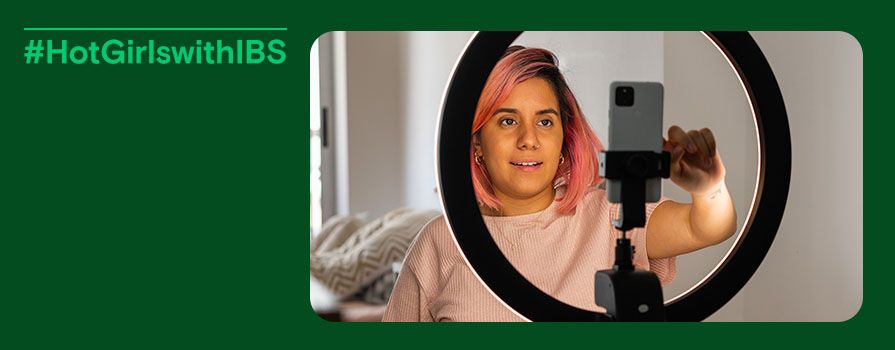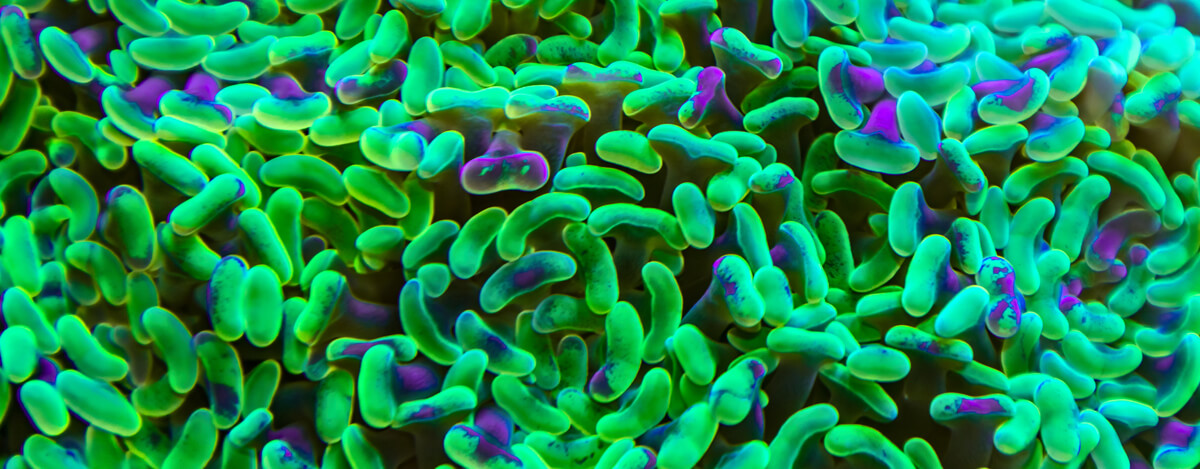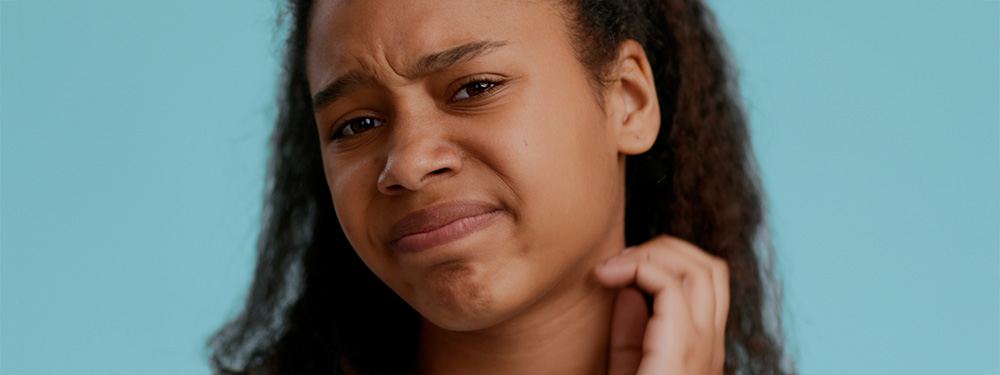
read time: 3 min
Health & Wellness
Understand the latest rumblings about irritable bowel syndrome
While “hot girls have stomach issues” started as an internet joke, it’s quickly changed the way we think about gut health. Twitter, Instagram, and TikTok have become platforms for people to talk—and often joke—about their personal experiences with irritable bowel syndrome (IBS). In fact, TikTok videos using #HotGirlswithIBS have been viewed more than 40 million times.1 What was once unthinkable to talk about in public is now the latest social media trend. More importantly, it’s normalizing IBS and helping people with the condition feel less alone.
What is IBS anyway?
Your digestive system is filled with trillions of bacteria, fungi, and other cells that make up your gut microbiome. The bacteria help your body break down the food you eat, give you energy, and remove waste when you poop. While this microscopic but mighty community of cells typically lives in harmony, the wrong mix of bacteria can cause cramps, bloating, gas, constipation, and diarrhea. This pain and discomfort are trademark symptoms of IBS, one of the most common disorders affecting the gut.
What are the causes of IBS?
Everyone’s gut microbiome, diet, and environment are unique—making it hard to pinpoint the exact cause of IBS. What we do know is that stress and certain foods tend to trigger the condition. Many people with IBS experience more frequent or worsened symptoms during periods of stress.2 While food allergies are rarely associated with IBS, foods and beverages that contain dairy or wheat, along with citrus fruits, beans, and cabbage can cause gut discomfort.
Is there a test for IBS?
As of today, there’s no single test to diagnose IBS. Doctors currently identify the disorder by exclusion—meaning all other conditions have been ruled out. If you have frequent symptoms of IBS, talk with your healthcare provider. They’ll start by running a series of blood tests to check if you have allergies or an inflammatory bowel disorder. Your doctor may also do a colonoscopy or an upper endoscopy—tests that use a tiny camera to see different areas of your digestive system from the inside. Finally, they may even check for parasites such as roundworms or tapeworms that can cause symptoms of IBS. If everything comes back negative, the likely conclusion is that you have IBS.
Is it IBS or IBD?
It’s easy to confuse irritable bowel syndrome (IBS) and inflammatory bowel disease (IBD). After all, the names are similar, and there are shared symptoms, including changes in bowel habits.
With IBS, there is a temporary imbalance of bacteria in your gut, likely brought on by food or stress. On the other hand, IBD suggests that there are more serious problems within your digestive tract—such as ulcerative colitis or Crohn disease. People with ulcerative colitis develop sores in their large intestine while those with Crohn disease have lesions in their stomach lining.
While IBS and IBD can affect both men and women, studies show that IBS is more common in women3—which could be one reason #HotGirlswithIBS is trending.
So why is IBS trending?
In recent years, researchers have gained a better understanding of the connection between the gut and overall physical and mental health.4 These science-based findings sparked public interest and helped bring gut health—including IBS—into the mainstream. Today, the prevalence of IBS in the US, a newfound willingness to talk openly about the condition, and a growing market of digestive health products like special yogurts and probiotics, are among the reasons why IBS continues to make headlines.
Social media and awareness
The growth of social media is a big part of building awareness for IBS. Today, 7 in 10 Americans use social media regularly for connection, entertainment, and expression.5 TikTok alone has become the leading platform for sharing health-related information. And IBS has become one of the most popular health subjects on the site.6
Stress
Have you ever received bad news that immediately made you feel sick to your stomach? Or you were so worried about something that you lost your appetite? Stress can affect our physical and mental health, and that sometimes triggers IBS. Today, a majority of people in the US feel anxious about health, money, and world events.7 With people more overwhelmed than ever8, it’s no surprise that we’re seeing a rise in IBS and other stress-related health issues.
Food habits
The way we eat is constantly changing, and sometimes not for the better. There’s no doubt that we’re consuming more processed foods than ever before, and that can have an impact on our microbiomes.
Living with IBS
If you have IBS you can live as symptom-free as possible by avoiding your food triggers and living a healthy lifestyle. This includes good nutrition, plenty of water, regular exercise, and healthy sleep habits. A doctor may also prescribe medications.
The future of IBS
We’re still understanding what causes IBS and how to treat it. As researchers continue to explore possible therapies, they uncover new insights about the most effective ways to improve the gut microbiome and relieve symptoms of IBS.
Some new treatments such as fecal microbiota transplantation, a poop transplant (yes, it means exactly what you think it means), which restores healthy intestinal bacteria, are currently being studied and trialed. Researchers are also investigating whether commonly used, FDA-approved drugs can be repurposed to support gut health. Probiotics and prebiotics, hypnotherapy, essential oils, and other treatments continue to be evaluated for effectiveness as well.
New scientific advances are encouraging and offer hope for people with IBS. But for now, the #HotGirlswithIBS trend has been a big step forward in removing the stigma around discussing this gut-wrenching condition.
References
1 #HotGirlswithIBS.
TikTok. Accessed December 5, 2022. https://www.tiktok.com/tag/hotgirlswithibs
2 Irritable bowel syndrome.
Mayo Clinic. N.d. Accessed October 29, 2022. https://www.mayoclinic.org/diseases-conditions/irritable-bowel-syndrome/symptoms-causes/syc-20360016
3 Sex-Gender Differences in Irritable Bowel Syndrome.
National Institutes of Health (NIH). October 1, 2018. Accessed October 29, 2022. https://www.ncbi.nlm.nih.gov/pmc/articles/PMC6175559/
4 The gut microbiome in health and in disease.
National Library of Medicine. January 31, 2015. Accessed November 3, 2022. https://www.ncbi.nlm.nih.gov/pmc/articles/PMC4290017/
5 Social Media Fact Sheet.
Pew Research Center. April 7, 2021. Accessed October 29, 2022. https://www.pewresearch.org/internet/fact-sheet/social-media/
6 Irritable Bowel Syndrom (IBS) and TikTok.
Physicians Weekly. October 19, 2022. Accessed October 29, 2022. https://www.physiciansweekly.com/irritable-bowel-syndrome-ibs-and-tiktok/
7 Stress in America.
American Psychological Association. March 2022. Accessed October 29, 2022. https://www.apa.org/news/press/releases/stress/2022/march-2022-survival-mode
8 World Unhappier, More Stressed Out Than Ever.
Gallup, Inc. June 28, 2022. Accessed October 30, 2022. https://news.gallup.com/poll/394025/world-unhappier-stressed-ever.aspx










